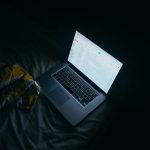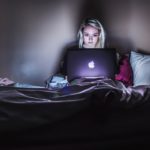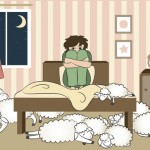
Nicholas Donnelly considers a recent Brazilian randomised controlled trial of Acceptance and Commitment Therapy versus Cognitive Behavioural Therapy for insomnia.
[read the full story...]
Nicholas Donnelly considers a recent Brazilian randomised controlled trial of Acceptance and Commitment Therapy versus Cognitive Behavioural Therapy for insomnia.
[read the full story...]
In her debut blog, Emma Sullivan explores a new paper looking at the feasibility of a CBT for insomnia intervention (delivered by non-expert practitioners) for young people with mental health difficulties.
[read the full story...]
Nick Donnelly discusses how one’s genetic predisposition to shorter sleep is associated with the onset of depression in older adults.
[read the full story...]
Sharon Eager summarises a qualitative study conducted with university students in South Africa who identify the pros and cons of iCBT for depression.
[read the full story...]
Andres Fonseca summarises a recent RCT which finds that apps for depression and anxiety in an IAPT service can be effective and cost effective.
[read the full story...]
Francesca Bentivegna explores a timely RCT concluding that delivering internet-based (email) CBT for health anxiety is non-inferior to face to face CBT in the short-term. The study also concludes that iCBT is more cost-effective.
[read the full story...]
Jack Barton marvels at the paradox that the very digital devices that harm our sleep patterns so terribly, may also be a possible solution to insomnia and sleep problems in young people. A new systematic review on digitally-delivered cognitive-behavioural therapy (eCBTi) for youth insomnia shows a little promise.
[read the full story...]
Jack Barton publishes his debut elf blog on the huge OASIS randomised controlled trial, which explores the effects that improved sleep can have on our mental health.
[read the full story...]
Amy Green appraises a systematic review of CBT for insomnia (CBTi) in people with comorbid mental illness, which concludes that cognitive behaviour therapy could be an effective alternative to hypnotics. However, concerns about the review methodology cast some doubt on the findings.
[read the full story...]